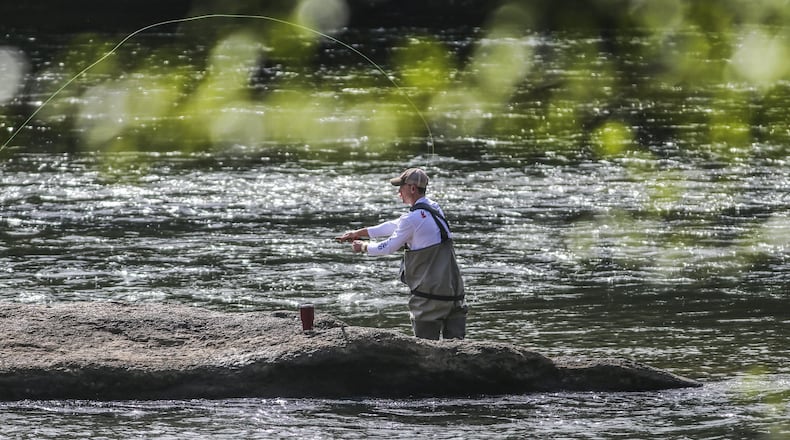Georgia wildlife officials are using an extra $8.2 million they’ve collected after boosting hunting and fishing licenses and boating registrations to improve the state’s public sites and hire more rangers.
After nearly a year with higher rates, the Department of Natural Resources collected $33.9 million in hunting and fishing license fees and boat registrations from July 1 through the end of May. The agency collected $25.7 million during the same period last year.
DNR officials said the revenue was needed to provide better hunting and fishing experiences.
“Whether they’re hunting from a blind or out wetting a hook, (the increased fees give) us the resources to better accomplish that goal all while ensuring those resources are better protected,” DNR Commissioner Mark Williams said.
In fiscal 2017, Georgia licensed 1.2 million fishermen and 630,000 hunters.
The department was allowed to raise the fees last year after receiving approval from the General Assembly. It was the state's first increase in hunting and fishing fees in 25 years.
The legislation also increased the cost of registering a boat. Many boaters use ramps in the public areas to fish.
The changes that went into effect in July increased the cost of a basic annual fishing and hunting license from $17 to $30. They also created a $70 lifetime license fee for senior citizens.
In this year’s budget, the General Assembly approved spending that additional money to maintain public fishing and hunting areas and eventually add 40 law enforcement rangers to the ranks to send to high-demand areas of Georgia.
The fee hikes brought Georgia in line with neighboring states. South Carolina charges $25 for a comparable hunting and fishing license. Florida charges $32.50.
The department is using the additional money to recruit the first class of about 40 new game wardens, enhance the state’s reefs or build artificial ones, and fund youth outreach programs.
About $2.7 million of the new revenue went to the law enforcement division to fund the additional game wardens. Forty-seven counties did not have one last year. The department is actively recruiting game wardens.
Money also is being used to maintain and repair roads in wildlife management areas, raise larger trout, allow night fishing and plant more food on public hunting lands.
Hunting groups had pushed for the increases, hoping the state would create more access roads in the wildlife management areas and hire more game rangers.
“Nobody has a problem with it,” Georgia Hunting and Fishing Federation President Reggie Dickey said of the increased fees. “Well, I should say most people don’t. Most people don’t like to pay more for anything.”
Dickey said he and his members have already seen the benefits of the fee increase in the state’s wildlife management areas. He said he especially appreciates the repair and maintenance of access roads.
“Some of them were impassable because they lacked the manpower or the funds to repair them,” he said. “It’s really bad in the winter when it’s starting to thaw and in the summer when it rains.”
About the Author
Keep Reading
The Latest
Featured




